When shipping goods internationally, choosing the right trade term can greatly affect costs, risks, and responsibilities. Two of the most commonly used Incoterms are Ex Works (EXW) and Free on Board (FOB). While both define who is responsible for different parts of the shipping process, they vary significantly regarding obligations for buyers and sellers.
In this article, you’ll learn:
- What Ex Works (EXW) mean, and who handles what
- What Free on Board (FOB) means and how responsibilities are divided
- The key differences between these two terms
- Which option might be better for your business
- Pros and Cons of EXW and FOB
- How a freight forwarding company helps you in cross-border shipments.
By the end, you’ll clearly understand whether EXW or FOB is the best fit for your shipping needs. Let’s break it down!
What is Ex Works (EXW)
Ex Works (EXW) is a trade term where the seller’s responsibility is minimal. Under EXW, the seller must only make the goods available at their location, such as a factory or warehouse. The buyer takes full responsibility from pickup to final delivery, including loading, transportation, customs clearance, and insurance.
Seller’s Responsibilities Under EXW
- Make goods available for pickup: The seller must ensure that the goods are available at the agreed location for the buyer to collect.
- No obligation for transport or loading: The seller is not responsible for loading the goods onto any transport or paying for any transport services.
- No export clearance: The seller does not handle any export formalities, and the buyer must handle all necessary documentation.
- No risk after goods are available: The risk of damage shifts to the buyer once the goods are available.
Buyer’s Responsibilities Under EXW
- Arrange for collection of goods: The buyer must organize transportation from the seller’s location and take full responsibility for the logistics.
- Handle export clearance and documentation: The buyer is responsible for all export procedures, including necessary documentation and customs clearance.
- Bear all shipping costs: The buyer must pay for all transport costs, including loading, shipping, insurance, and unloading.
- Take on risk from collection: The buyer assumes all risk once the goods are available for pickup at the seller’s location.
When to Choose EXW?
EXW is ideal if you’re comfortable managing logistics and want full control over shipping. However, it can be challenging if you’re unfamiliar with international shipping, as you bear all the risks and costs.
For more information about EXW (Ex-Works), please read our detailed blog that explains the term and its implications in international shipping.
What is Free on Board (FOB)
Free on Board (FOB) is a more balanced trade where the seller is responsible for getting the goods onto the shipping vessel at the port of origin. Once the goods are loaded into the vessel, the buyer takes over responsibility.
Seller’s Responsibilities Under FOB
- Delivery to the port of shipment: The seller is accountable for delivering the goods to the specified port and loading them onto the shipping vessel.
- Handle export procedures: The seller must clear the goods for export, including any customs documentation or fees at the port of departure.
- Risk transfer when goods are loaded: The seller’s responsibility ends once the goods are loaded onto the vessel; from there, all risks transfer to the buyer.
Buyer’s Responsibilities Under FOB
- Assume risk after loading: The buyer assumes responsibility for any damage or loss once the goods are loaded onto the vessel.
- Pay for shipping and import costs: The buyer is responsible for transportation from the port of shipment, insurance, and any import duties or taxes at the destination.
- Handle import clearance and delivery: The buyer manages customs clearance at the destination port and arranges for the goods to be delivered to their ultimate destination.
When to Choose FOB?
FOB is a great option if you want the seller to manage the export process but still control shipping beyond that point. It’s often preferred by buyers who don’t want to deal with export formalities but are experienced in handling international shipping.
Key Differences: EX Works Vs FOB
| Aspect | Ex Works (EXW) | Free on Board (FOB) |
| Seller’s Responsibility | Minimal – only provides goods at their location | Manages export clearance and loads goods onto the vessel |
| Buyer’s Responsibility | Handles everything from pickup to final delivery | Takes over responsibility once goods are loaded on the vessel |
| Export Customs Clearance | Buyer is responsible | Seller is responsible |
| Import Customs Clearance | Buyer is responsible | Buyer is responsible |
| Transportation to Port | Buyer arranges and pays | Seller arranges and pays |
| Freight & Shipping Costs | Buyer covers full shipping costs | Buyer covers ocean freight and onward shipping costs |
| Additional Charges | Higher costs for the buyer due to full logistics responsibility | Buyer may save on export-related charges as the seller handles them |
| Risk Transfer Point | At seller’s premises (factory/warehouse) | Once goods are loaded onto the shipping vessel |
| Mode of Transport | Any mode (air, sea, road, rail) | Mostly used for sea freight shipments |
| Shipping Cost Control | Buyer has full control over costs and logistics | Buyer controls costs only after goods are on board |
| Best for | Buyers who want full control over shipping | Buyers who prefer sellers to handle export logistics |
| Commonly Used By | Experienced importers with logistics expertise | Businesses that want a hassle-free export process |
Also Read: Differences and Responsibilities in CIF and FOB Shipping Terms
Pros and Cons of Using EXW
When considering EXW (Ex Works) for your international transactions, weighing the advantages and disadvantages is important. While EXW offers flexibility and control, it also places significant responsibility and risk on the buyer.
Let’s check out the pros and cons of using EXW to help you decide if it’s the right choice for your shipping needs.
Pros of EXW
- Seller’s Low Responsibility: With EXW, the seller has minimal obligations. The seller’s obligation is complete once the goods are ready for pickup at the designated location. The seller doesn’t have to worry about transportation, customs clearance, or other post-sale logistics complexities.
- Buyer’s Control Over Shipping and Costs: EXW gives the buyer more control over the shipping process. As the buyer, you can choose your preferred shipping company, negotiate the best rates, and schedule the transport according to your needs. You also get to handle the customs process, which might be beneficial if you know the local regulations.
- No Export Responsibility for Seller: The seller doesn’t have to worry about export clearance or handling any of the paperwork involved in international shipping. This can reduce potential delays or complications for the seller, as they aren’t required to interact with customs in the buyer’s country.
Cons of EXW
- Buyer Takes on All Risks: While EXW gives you control over shipping, it also means you bear all the risks once the goods are available for pickup. You are fully responsible if anything happens to the goods during transport, such as damage or theft. This can be risky, especially if you don’t have a solid logistics plan or insurance.
- Buyer’s Heavy Responsibility for Logistics: EXW places all the logistical responsibilities on the buyer. You must arrange the pickup, manage the transport, handle export clearance, and ensure everything complies with regulations.
- Higher Potential Costs for Buyer: While the seller is off the hook after making the goods available, the buyer may face higher shipping costs. Because the buyer is responsible for organizing the entire logistics, there may be added fees for freight, customs clearance, and even delays that increase the overall cost of the transaction.
- Potential Delays in Pickup: As the buyer, you are responsible for arranging the pickup from the seller’s location. Suppose you face any issues with transportation or scheduling. In that case, the process may be delayed, which can impact the delivery time and even the overall cost of additional storage or handling fees are incurred.
In summary, EXW can be a good choice if you’re experienced with international shipping and want more control over the process. However, it can also be a bit over.
Pros and Cons of Using FOB
FOB (Free on Board) is a popular Incoterm for international shipping, offering a balance of responsibility between the buyer and the seller. It comes with its own set of advantages and drawbacks. Understanding these pros and cons will help you decide whether FOB is the right choice for your shipment.
Pros of FOB
- Seller’s Limited Responsibility: Under FOB, the seller is only responsible for delivering the goods to the port and loading them onto the shipping vessel. This limits their obligations and reduces their exposure to risks after loading the goods.
- Buyer Has Control Over Shipping and Risk: The buyer assumes responsibility once the goods are loaded onto the vessel. This allows the buyer to control the shipping process, choose the shipping company, and manage insurance. This can often be beneficial if the buyer wants to ensure their preferred handling or negotiate better shipping rates.
- Clear Risk Transfer Point: Risk transfer occurs when the goods are loaded onto the vessel, making it clear for both parties when the risk shifts. This clarity can help prevent misunderstandings about who is responsible for damages or loss during shipping.
Cons of FOB
- Higher Responsibility for the Buyer: After the goods are loaded onto the ship, the buyer takes full responsibility for all risks, costs, and logistics. If anything goes wrong during transportation, such as damage or delays, the buyer must manage the situation, which can be challenging, especially if the shipment is international.
- Additional Costs for the Buyer: The buyer is responsible for the shipping costs, including transport from the port of shipment, insurance, import duties, and customs clearance. This can make FOB more expensive for the buyer compared to other terms where the seller might cover these costs.
- Potential Delays in Seller’s Delivery: The seller must deliver the goods to the port and ensure they are properly loaded onto the ship. If there are any delays at this stage, it can impact the shipping schedule and cause delays in the buyer’s receiving of the goods.
In conclusion, FOB offers a more balanced approach between the buyer and seller, but it requires the buyer to manage more responsibility once the goods are loaded onto the vessel. It’s a good option for those who want control over shipping and logistics but are prepared to handle the additional responsibilities that come with it.
Choosing the Right Incoterm for Your Trade
Selecting the right Incoterm can impact your shipping costs, responsibilities, and overall trade efficiency. Here are key factors to consider when deciding between EXW and FOB:
1. Factors to Consider
- Type of Goods:
- If goods require specialized handling that the seller is more experienced with, FOB might be a better choice.
- If you’re dealing with high-value or fragile items, having more control over logistics (EXW) may be beneficial.
- Buyer’s Logistics Experience:
- If you’re an experienced importer with a strong freight network, EXW can give you cost advantages.
- If you’re new to international shipping, FOB is usually easier, as the seller handles export formalities.
- Supplier Relationship:
- If you have a trusted supplier who offers competitive shipping rates, FOB can save you time and effort.
- If you prefer to work with your own freight forwarders and negotiate shipping costs, EXW is a good fit.
2. Risk Tolerance and Cost Management Preferences
- Risk Distribution:
- EXW places all risks on the buyer from pickup to final delivery.
- FOB shifts the risk to the buyer only after the goods are on board the vessel.
- Cost Management:
- EXW gives you full control over costs, but it may involve higher expenses due to separate freight arrangements.
- FOB can be cost-effective if the seller has better local shipping rates and handles export clearance smoothly.
3. Importance of Buyer’s Control Over the Shipping Process
If you want full control over freight carriers, transit routes, and insurance, EXW allows you to manage every step. If you want the seller to handle export clearance and initial transport, FOB reduces your workload while giving you control from the departure port onward.
Role of Freight Forwarders
Freight forwarders play a crucial role in international trade by managing the logistics and transportation of goods from the seller to the buyer. Whether you’re working with EXW or another Incoterm, freight forwarders help streamline the shipping process, ensuring goods reach their destination efficiently and safely.
Intoglo, a trusted freight forwarder, offers comprehensive services that cover the entire supply chain. Here’s how Intoglo supports both EXW sellers and buyers in managing transportation and export:
- Seamless Door-to-Door FCL Shipments from India to the USA: Intoglo provides full-container load (FCL) shipments from origin to destination, ensuring smooth and direct transportation of goods.
- Origin Pickup, Origin CFS & Customs Clearance: Intoglo handles the PAN India pickup of goods in 24 hours, their arrival at the Container Freight Station (CFS), and ensures all export customs formalities are efficiently taken care of.
- Destination CFS & Customs Clearance: Upon arrival at the destination port, Intoglo manages the unloading of goods at the destination CFS, along with the necessary import customs clearance.
- Last Mile Delivery: Intoglo provides smooth and reliable last-mile delivery. We ensure your goods reach their final destination without hassle.
- Own CFS Space at Major Ports: Intoglo operates its own CFS space at key ports, helping streamline port operations and reduce delays.
- Direct Trucking Network in the USA: Intoglo manages a direct trucking network across the USA, making domestic delivery reliable and cost-effective.
- Next-Gen Warehousing: Intoglo offers advanced warehousing solutions, providing secure storage and quick access to inventory.
- End-to-End Tracking: You can track your shipment from pickup to delivery in real-time, offering peace of mind and transparency throughout the journey.
- Transparent Quotation with Cost Breakup & Clear Ts & Cs: Intoglo provides transparent pricing with a detailed cost breakdown and clear terms and conditions, so there are no hidden fees.
Intoglo serves over 200 clients, including MSMEs, D2C brands, and large enterprises, delivering reliable and efficient logistics services. Their expertise in handling complex shipping requirements makes them a11“n invaluable partner for EXW sellers and buyers who need smooth, reliable, and cost-effective logistics solutions.
Get in touch with FCL shipping experts.
Conclusion
In conclusion, understanding the key differences between Ex Works (EXW) and Free on Board (FOB) is important for both buyers and sellers involved in cross-border shipments. While EXW offers minimal responsibility for the seller and maximum control for the buyer, it also places the burden of logistics on the buyer, which can lead to higher risk and cost.
On the other hand, FOB provides a more balanced approach, with the seller handling shipping to the port and the buyer assuming responsibility once the goods are loaded onto the vessel.
Choosing the right Incoterm depends on risk tolerance, logistics experience, and the need for control over the shipping process.
Looking for a seamless shipping solution? Get an instant quote for FCL shipping from India to the USA with Intoglo – your trusted partner for hassle-free international logistics.


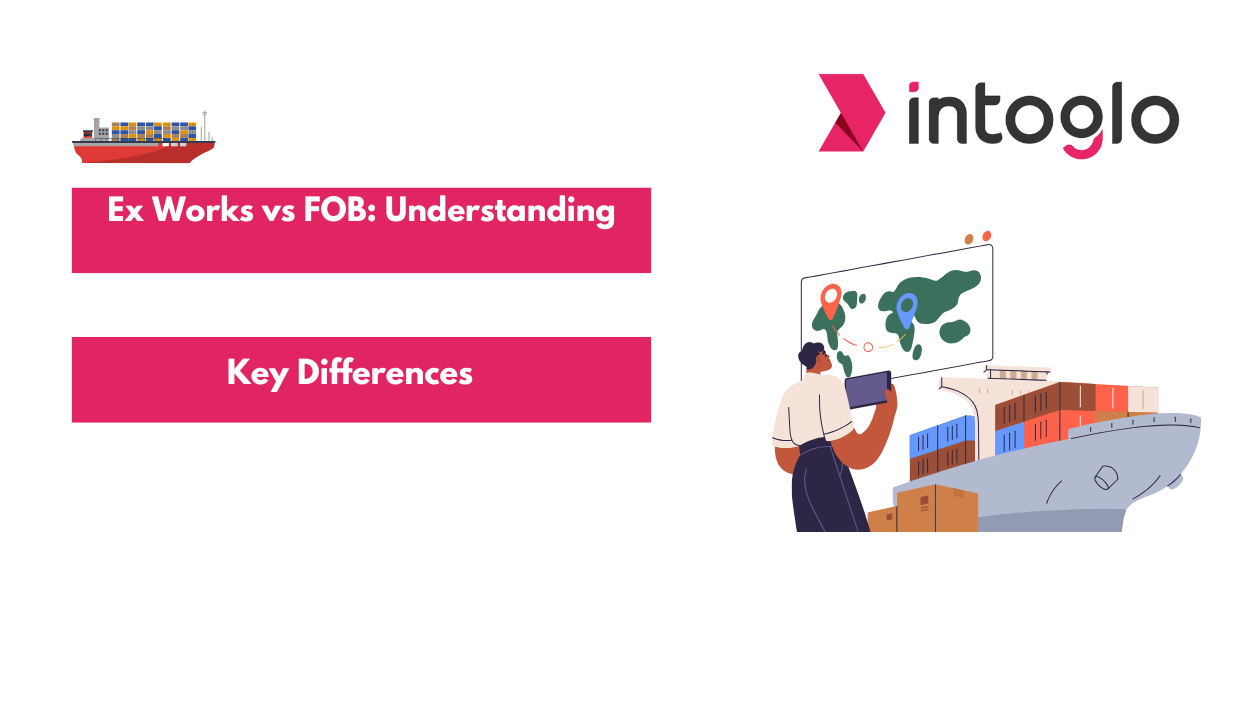

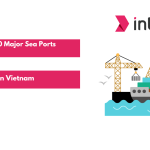
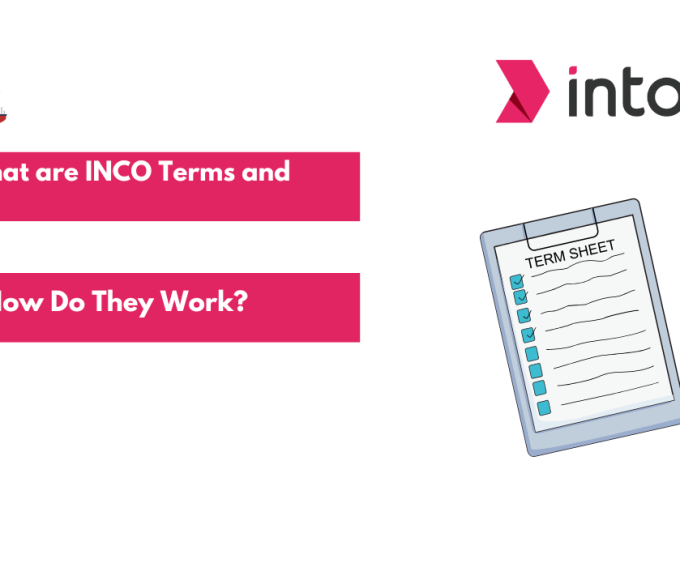
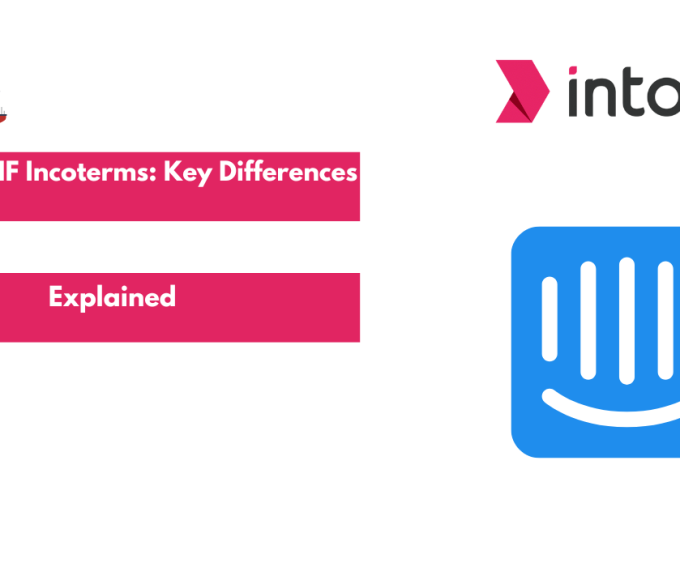
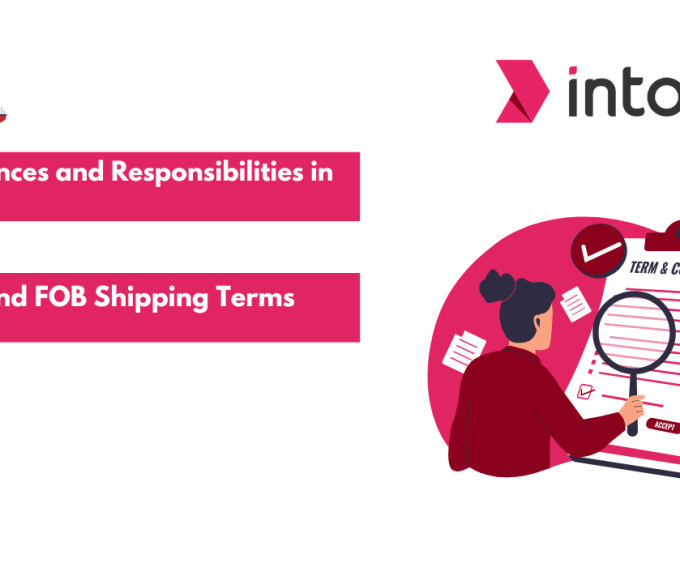
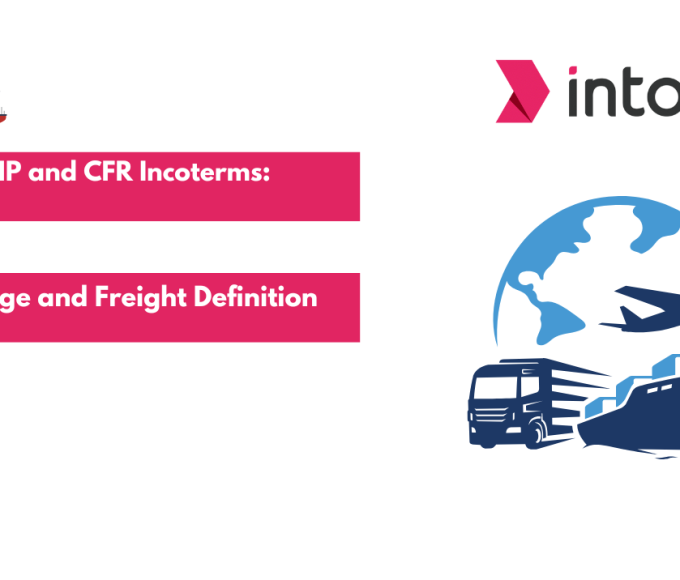
Leave a comment